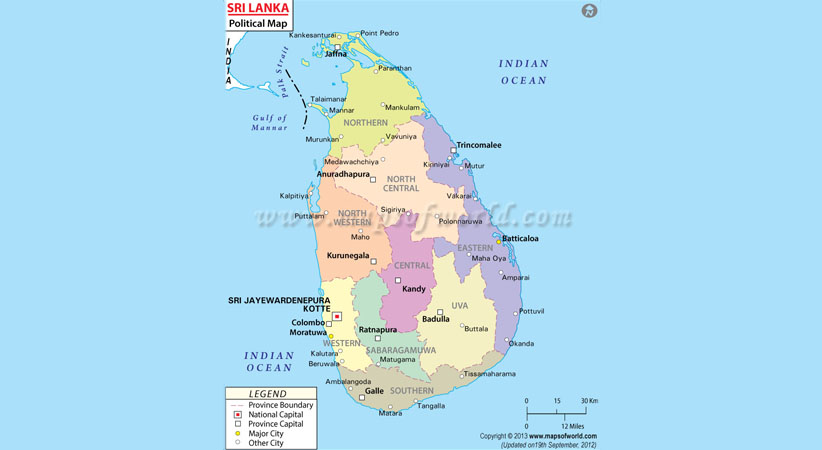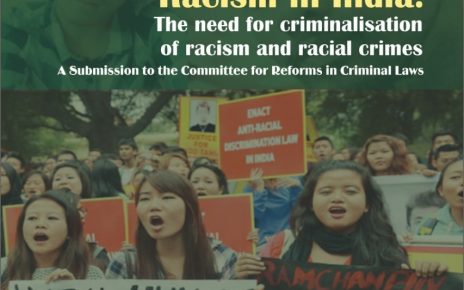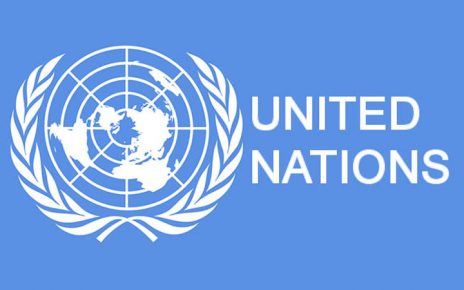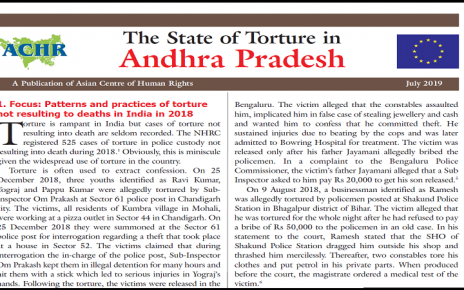Article 11 of the Constitution of Sri Lanka specifically prohibits torture by stating that “no person shall be subjected to torture or to cruel, inhuman or degrading treatment or punishment”. This prohibition is made absolute by Article 15, which prohibits any limitation on Article 11 under any circumstance, even for reasons of national security and public order.
To give effect to the country’s obligations under the UNCAT, due to its dualist legal system, the Government enacted the Convention against Torture and Other Cruel, Inhuman or Degrading Treatment or Punishment Act, No. 22 of 1994 (CAT Act). The Act criminalized torture.
Under Section 2 of the CAT Act, acts of torture, as well as participation, complicity, aiding and abetting, incitement and attempt to torture are criminal offences punishable with 7-10 years in prison and a fine of 10,000-50,000 rupees. However, while the Act is generally in conformity with the definition of torture in the Convention, it does not include “suffering” but only “severe pain, whether physical or mental”.
The prohibition of torture under the CAT Act is absolute. Section 3 of the CAT Act states that “For the avoidance of doubts it is hereby declared that the fact that any act constituting an offence under this Act was committed (a) at a time when there was a state of war, threat of war., internal political instability or any public emergency; (b) on an order of a superior officer or a public authority, shall not be a defence to such offence.”
Under the CAT Act, the High Court of Sri Lanka has jurisdiction over acts of torture committed outside Sri Lanka if the perpetrator is within Sri Lankan Territory, irrespective of his or her nationality or the nationality of the victim.
However, torture continued to be a “common practice” in Sri Lanka and lack of proper investigations into allegations of torture and ill-treatment as found out by the UN Special Rapporteur on torture Mr Juan E. Méndez during his visit to Sri Lanka from 29 April to 7 May 2016 and the Committee against Torture which considered the fifth periodic report of Sri Lanka and adopted the concluding observations on 30 November 2016.
The Committee against Torture in its concluding observations on the fifth periodic report of Sri Lanka (CAT/C/LKA/5), adopted on 30 November 2016, expressed serious concerns about consistent reports from national and United Nations sources, including the Special Rapporteur on torture, indicating that torture is a common practice carried out in relation to regular criminal investigations in a large majority of cases by the Criminal Investigation Department of the police, regardless of the nature of the suspected offence and the broad police powers to arrest suspects without a court warrant has led to the practice of detaining persons while conducting the investigations as a means to obtain information under duress. Police investigators often fail to register detainees during the initial hours of deprivation of liberty or to bring them before a magistrate within the time limit prescribed by law, during which time torture is particularly likely to occur. Neither the Attorney General nor the judiciary exert sufficient supervision over the legality of the detention or the conduct of police investigations to prevent this practice.
In his report (A/HRC/34/54/Add.2), the Special Rapporteur on torture stated, “While the practice of torture is less prevalent today than during the conflict and the methods used are at times less severe, the Special Rapporteur concludes that a “culture of torture” persists; physical and mental coercion is used against suspects being interviewed, by both the Criminal Investigations Department in regular criminal investigations and by the Terrorism Investigation Division in investigations under the Prevention of Terrorism Act.” During his visit, the Special Rapporteur conducted numerous interviews with both male and female torture survivors, including former and current detainees, from various periods during and after the conflict, as well as recent cases (2015-2016). The forensic expert accompanying the Special Rapporteur conducted medical examinations in a number of these cases, which confirmed physical injuries consistent with the testimonies received.
The Special Rapporteur also stated “suspects, particularly detainees under the Prevention of Terrorism Act, are often first detained for interrogation without being registered during the initial hours, days or sometimes weeks of investigation and not brought before a judge. This practice facilitates the use of torture and other ill-treatment and can in itself constitute such treatment”.[1] The Special Rapporteur interviewed current and former suspects detained under the Prevention of Terrorism Act and received well-documented accounts of extremely brutal methods of torture, including burns; beatings with sticks or wires on the soles of the feet (falanga); stress positions, including suspension for hours while handcuffed; asphyxiation using plastic bags drenched in kerosene and hanging of the person upside down; application of chili powder to the face and eyes; and sexual torture, including rape and sexual molestation, and mutilation of the genital area and rubbing of chili paste or onions on the genital area. In some cases, these practices occurred over a period of days or even weeks, starting upon arrest and continuing throughout the investigation.
The UN Committee against Torture also found that “under the Protection against Terrorism Act, confessions obtained by officials at or above the rank of Assistant Superintendent of Police are still admissible as sole evidence in court, even if they were taken without the presence of a lawyer and are later retracted by the accused on the grounds of coercion.” The Committee remained seriously concerned at information that 90 per cent of convictions are based on a confession alone or as the main evidence and that, in numerous documented cases of torture, the accused persons alleged that they were forced to sign blank sheets of paper or self-incriminatory statements written in a language they did not understand.
The Committee against Torture expressed concern at credible reports indicating that the practice of so-called “white van” abductions of Tamils and then subjecting them to brutal torture, often including sexual violence and rape of men and women which has continued in the years following the end of the armed conflict. Such practices were carried out by both military and police in unacknowledged places of detention, which have included law enforcement headquarters, army and internally displaced person camps and “rehabilitation centres”. The Special Rapporteur also said he received credible reports of “white van abductions” as recent as April 2016 by officers in plain clothes believed to belong to the Criminal Investigations Department or the Terrorism Investigation Division.
Further, the Committee against Torture expressed deep concerns about the lack of proper investigations into allegations of torture and ill-treatment. The Committee expressed concerns that only 17 cases of torture were filed under the Convention against Torture Act since 2012 and only 2 have resulted in convictions, suggesting that only a small number of allegations of torture have actually been investigated. The considerable discrepancy between the low number of complaints of torture reportedly received by the police since 2012 (150 cases) and the high number of allegations of torture received by the Human Rights Commission of Sri Lanka during the same period (2,259 cases) was noted. Obviously, Sri Lanka is yet to root out torture but legal framework remains in place.
The Special Rapporteur was also extremely alarmed that “investigations into allegations of torture and ill-treatment are not investigated”. He discerned a worrying lack of will within the Office of the Attorney-General and the judiciary to investigate and prosecute allegations.
ENDNOTES:
[1]. Report of the Special Rapporteur on torture and other cruel, inhuman or degrading treatment or punishment on his mission to Sri Lanka (A/HRC/34/54/Add.2, 22 December 2016), para 24




